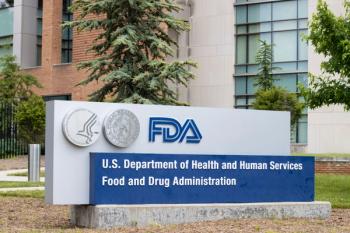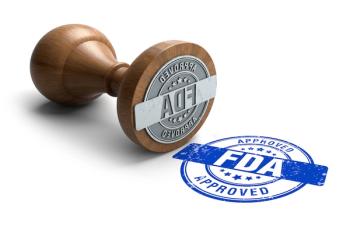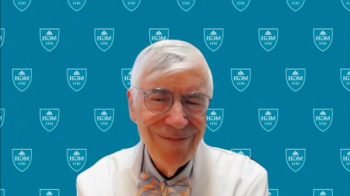
FDA Approves Marstacimab, First Weekly Sub-Q Option for Hemophilia B
Key Takeaways
- Marstacimab is the first subcutaneous option for hemophilia B, reducing reliance on frequent IV infusions and improving patient quality of life.
- The phase 3 BASIS trial showed marstacimab reduced annualized bleeding rates by 35% compared to prophylaxis and 92% compared to on-demand treatment.
FDA today approved marstacimab, an anti-tissue factor pathway inhibitor (anti-TFPI) to prevent or reduce bleeding episodes in patients with hemophilia A and B. Marstacimab, to be sold as Hympavzi by Pfizer, is given weekly by an autoinjector pen and is the first subcutaneous option for those with hemophilia B, according to
Hemophilia is a group of genetic blood diseases that block the blood’s ability to clot properly, causing bleeding inside the joints and permanent damage. The condition is triggered by a clotting factor deficiency—factor VIII in hemophilia A and factor IX in hemophilia B. According to the CDC,
Although there has been progress in managing hemophilia, for years this required intravenous (IV) infusions multiple times a week; patients with hemophilia had no other options until recently, and those with hemophilia B had only had IV therapy until today. The effect of frequent IV infusions on vein health and quality of life is enormous; it limits patients’ ability to participate in certain jobs, activities, or travel. A
Prophylaxis IV therapy is also costly to the health system. Although this method has been found more cost-effective than on-demand therapy,
While it marks a significant improvement over current options for patients with hemophilia B, the new therapy comes at a price. According to a statement from Pfizer, the annual wholesale acquisition cost (WAC) for marstacimab will be $795,600, which "is in line with current WAC pricing for prophylactic treatments for hemophilia A or B currently available on the market."
Marstacimab is described as a “rebalancing agent” that targets the Kunitz 2 domain of TFPI, which is a natural anticoagulation protein that prevents blood clots from forming. The current subcutaneous therapy available for hemophilia A in the United States, Genentech’s
FDA’s approval for marstacimab is for routine prophylaxis to prevent or reduce the frequency of bleeding episodes in adults and pediatric patients 12 years of age and older with hemophilia A (congenital factor VIII deficiency) without FVIII inhibitors, or hemophilia B (congenital factor IX deficiency) without FIX inhibitors.
Approval is based on results of the
“The approval of [marstacimab] is a meaningful advancement for people living with hemophilia A or B without inhibitors for bleed prevention, with a generally manageable safety profile and a straightforward once-weekly subcutaneous administration,” Suchitra S. Acharya, MD, director of the Hemostasis and Thrombosis Center Northwell Health and Program Head, Bleeding Disorders and Thrombosis Program, Cohen Children’s Medical Center, said in a statement. Marstacimab “aims to reduce the current treatment burden by meeting an important need for these patients, including many who have required frequent, time-consuming intravenous treatment infusion regimens.”
The therapy, “is Pfizer’s second hemophilia treatment to receive FDA approval this year and is the latest meaningful scientific advancement in our more than 40-year commitment to improve care for people living with hemophilia,” Aamir Malik, chief US commercial officer and executive vice president for Pfizer, said in the statement.
Malik said that Pfizer now offered 3 classes of hemophilia medicines—anti-TFPI, gene therapy, and recombinant factor treatments—to serve a range of patients.
"The hemophilia community continually seeks advancements in care that can improve quality of life for our community members," Phil Gattone, president and CEO of the National Bleeding Disorders Foundation said in the statement. "The availability of this therapy represents a powerful step forward in advancing care for more individuals and families in the bleeding disorders community.”
This article has been updated to add the wholesale acquisition cost.
References
- U.S. FDA Approves Pfizer’s HYMPAVZI™ (marstacimab-hncq) for the Treatment of Adults and Adolescents with Hemophilia A or B Without Inhibitors. News release. Pfizer. October 11, 2024. Accessed October 11, 2024. https://www.pfizer.com/news/press-release/press-release-detail/us-fda-approves-pfizers-hympavzitm-marstacimab-hncq
- Matino D, Acharya S, Palladino A, et al. Efficacy and safety of the anti-tissue factor pathway inhibitor marstacimab in participants with severe hemophilia without inhibitors: results from the phase 3 BASIS trial. Blood. 2023;142 (suppl 1):abstr 285.
https://doi.org/10.1182/blood-2023-181263
Newsletter
Stay ahead of policy, cost, and value—subscribe to AJMC for expert insights at the intersection of clinical care and health economics.









